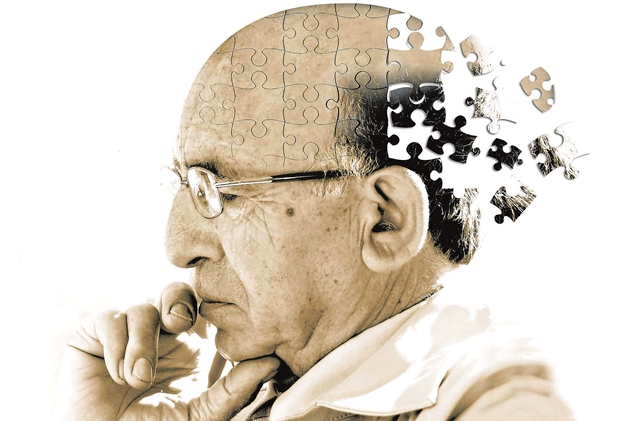
The term dementia refers to a set of symptoms that are characterized by a progressive deterioration of cognitive functions. And senile refers to old age. Therefore, the term senile dementia applies to the dementia that occurs in the elderly. However, its use is rather popular because there is no medical term.
Dementia is a disorder that often occurs in older people, because over the years the neurons are deteriorating. They may be slower understanding words, holding conversations, in their movements or even having small lapses, but that does not mean that all elderly people suffer from dementia.
Symptoms of dementia
Dementia in the elderly is characterized by the progressive and irreversible loss of memory, thought, speech, understanding that affect the ability to communicate and perform everyday tasks. Personality changes and behaviors are also common.
Memory is one of the first symptoms that appear in people with dementia. In a first phase can be confused with small shortcomings, but little by little they get worse. He can cook, but then he forgets to serve. With the advance of the disease as well as affecting recent events, they also influence knowledge rooted in long-term memory such as the names of relatives.
The language is affected, at first by the difficulty of remembering the name of objects, finding the right word or having a conversation. Subsequently, problems are added to pronounce words ending with an inability to speak.
The thinking becomes difficult over time, the ability to perform calculations or work with complex situations decreases. Their ability to understand is altered so that misunderstandings often occur
Personality changes is another characteristic feature of dementia. The patient at the beginning will have behavioral changes that sometimes will be inappropriate, some personality traits can become worse, causing problems: anger, rude answers, an overflowing desire to be right, etc.
The disorientation is sporadic in the first phases, getting worse little by little. At first, they may have the feeling that they have been lost, but they will immediately recognize the place or remember where they are going. With the advance of the disease, their disorientation will be both spatial and temporal: they will not know where they are going, where they come from, where they are, if it is Tuesday or Thursday, or if it is time to have a snack or dinner, etc.
The daily tasks that at the beginning of the disease do not represent a problem, are increasingly complicated to perform. They need help to get dressed, put on shoes, eat, go to the bathroom, etc. These complications plus other problems arising from other problems cause you to neglect their hygiene. The patient with dementia is slowly losing independence, needing help to carry out any task. At the end of the illness they are usually bedridden or sitting on the sofa, they can not move.
The motor functions do not have a deterioration due to a physical problem per se. The ability to move in the patient with dementia is diminished by the inability to coordinate movements that make it difficult to perform and promotes muscle loss and atrophy.
Dementia is a progressive disease that takes time to manifest because evolution is slow. It is a disorder that is only cured when it has been caused by an external agent such as another disease or a drug. Therefore, it is irreversible. As the disease progresses, the symptoms that the patient suffers are aggravated until he is a totally dependent patient and in need of special care.
Leave a reply










Leave a reply